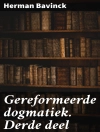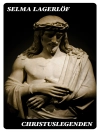In ‘The Plan of Salvation, ‘ John Morgan meticulously explores the intricate theological foundations and historical evolution of salvation within various religious traditions. Employing a narrative style interwoven with analytical rigor, Morgan contextualizes pivotal scriptural interpretations, philosophical debates, and cultural influences that shape contemporary beliefs about redemption. The book dives deep into both doctrinal nuances and the human experience of seeking salvation, providing readers with a rich tapestry that elucidates the complexities of faith. John Morgan, a respected theologian and historian, draws from his extensive academic background and personal pilgrimage through diverse religious landscapes. His profound understanding of both Eastern and Western theological frameworks guides his inquiry into humanity’s ancient quest for meaning and restoration. Having witnessed the transformative power of faith in various communities, Morgan’s passion for bridging doctrinal divides motivates him to seek a more inclusive understanding of salvation’s significance for individuals across cultures. I highly recommend ‘The Plan of Salvation’ to anyone interested in theological studies, interfaith dialogue, or the personal journey of faith. Morgan’s accessible prose and thorough scholarship invite readers to engage deeply with their beliefs, making it an essential contribution to contemporary discussions on spirituality and morality.
关于作者
John Morgan, an erudite theologian known for his compelling discourse on eschatology, ventured into the realms of religious literature with his seminal work, ‘The Plan of Salvation.’ His book delves into the intricacies of soteriology, presenting a comprehensive guide to understanding the Christian concept of salvation and the divine design behind it. Morgan postulates the coherence between divine grace and human agency in the pursuit of redemption, drawing upon a wealth of biblical exegesis and patristic scholarship. His lucid style amalgamates rigorous academic research with profound spiritual insights, making his work accessible to both the scholar and layperson. While detailing the historical background of salvation doctrines, Morgan also addresses contemporary theological debates, positioning himself as a voice of mediation within polarized discourse. His literary contributions extend beyond mere academic exercise, inviting readers into a deeper contemplation of faith, hope, and the transformative power of divine love in the Christian tradition. Though not widely known outside of theological circles, Morgan’s text remains a touchstone for students and educators in the fields of religious studies and pastoral ministry, reflecting a career dedicated to exploring the depths of spiritual understanding and the human condition.












